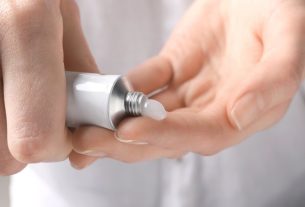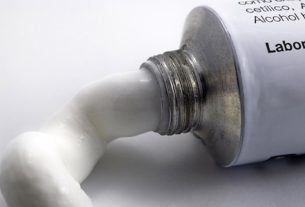Alteplase is a medicine indicated for the treatment of acute myocardial infarction, acute massive pulmonary embolism or acute ischemic stroke, as it acts quickly by dissolving the clot inside the blood vessel, preventing complications from these diseases.
This medicine is found in hospitals in the form of a diluted powder for injection into the vein, containing 10 mg, 20 mg or 50 mg of alteplase, under the trade name Actilyse.
Read too: 9 main causes of heart attack (and what to do)
Alteplase is only used in hospitals, as it is a medicine to treat medical emergencies and must be applied into a vein by a nurse, under medical supervision.
What is it for
Alteplase is indicated for the treatment of:
- Acute myocardial infarction;
- Massive acute pulmonary embolism with hemodynamic instability;
- Acute ischemic stroke.
Furthermore, although it is not indicated in the manufacturer’s leaflet, alteplase can be used to unblock the central venous or hemodialysis catheter, to restore its function.
Alteplase should only be used with the advice of a cardiologist, neurologist or pulmonologist, with specific doses according to the condition to be treated.
How to use
Alteplase must be used through injection directly into the vein, carried out in the hospital by the nurse, in doses recommended by the doctor, and must be diluted before use.
Doses vary depending on the condition being treated and include:
1. Acute myocardial infarction
For the treatment of acute myocardial infarction, when alteplase can be used within 6 hours after the onset of symptoms, the recommended doses are:
For people who start treatment 6 to 12 hours after the onset of heart attack symptoms, the doses of alteplase for people who weigh 65 kg or more are 10 mg in an intravenous bolus, followed by 50 mg by vein infusion during the first 60 minutes.
Then, the recommended dose is 40 mg of alteplase by infusion into the vein, over 2 hours, until the maximum total dose of 100 mg is reached.
For people weighing less than 65 kg, who start treatment 6 to 12 hours after the onset of heart attack symptoms, an intravenous bolus of 10 mg should be administered, followed by a dose of a maximum of 1.5 mg/kg of body weight for 3 hours of infusion into the vein.
2. Pulmonary embolism
The dosage of alteplase for massive acute pulmonary embolism with hemodynamic instability is:
- People weighing 65 kg or more: the total dose is 100 mg in 2 hours, and it is recommended to make an intravenous bolus of 10 mg over 1 to 2 minutes, followed by 90 mg of alteplase by vein infusion over 2 hours;
- People weighing less than 65 kg: apply an intravenous bolus of 10 mg, and immediately afterwards, infuse into the vein with a maximum dose of 1.5 mg/kg of body weight, for 2 hours.
After applying alteplase, the pulmonologist may recommend additional treatment with heparin. See what heparin is for.
3. Acute ischemic stroke
The dosage of alteplase for the treatment of acute ischemic stroke varies according to body weight, with a total dose of 0.9 mg/kg of body weight being recommended.
Normally, treatment begins by applying an intravenous bolus of 10% of the total dose, and immediately afterwards, an infusion is made into the vein with the remainder of the total dose, over 60 minutes.
Read too: How to differentiate between types of stroke
Possible side effects
The most common side effect of alteplase is bleeding or hemorrhages, which can occur in the brain, respiratory or urinary system, or at the injection or catheter site, for example.
Therefore, you should be aware of symptoms such as dizziness, weakness, sudden headache, bleeding from the nose or gums, coughing or vomiting blood, blood in the stool or urine, or vaginal bleeding.
In these cases, treatment is started immediately, as alteplase is only used in hospitals. However, if these symptoms appear after discharge from the hospital, you should go to the emergency room immediately.
Read too: Cerebral hemorrhage: symptoms, causes, treatment and consequences
Who shouldn’t use
Alteplase should not be used by people who have a high risk of bleeding, such as those using anticoagulants or a recent history of bleeding, or who have a brain tumor, aneurysm, intracranial or spinal surgery in the last 3 months, or brain trauma.
This medicine should also not be used by people with uncontrolled high blood pressure, childbirth in the last 10 days, liver disease, inflammation of the pancreas, bacterial endocarditis or pericarditis, for example.
During pregnancy, alteplase should only be used if indicated by the doctor, after evaluating the risks for the baby and the benefits of the treatment for the woman.
When breastfeeding, it is recommended to stop breastfeeding for at least 24 hours after applying alteplase, or as recommended by a doctor, as it can pass to the baby through breast milk.

Sign up for our newsletter and stay up to date with exclusive news
that can transform your routine!
Warning: Undefined array key "title" in /home/storelat/public_html/wp-content/plugins/link-whisper-premium/templates/frontend/related-posts.php on line 12
Warning: Undefined array key "title_tag" in /home/storelat/public_html/wp-content/plugins/link-whisper-premium/templates/frontend/related-posts.php on line 13




